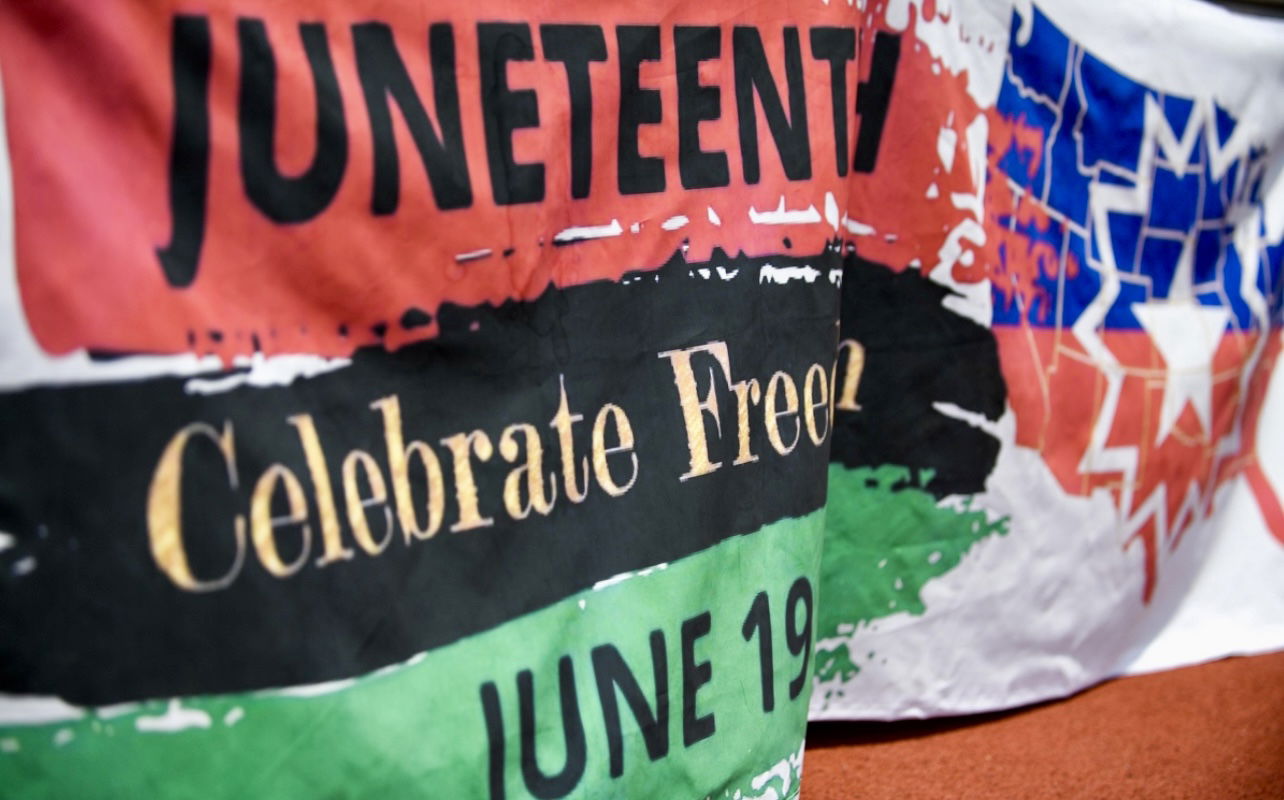
by Jeroslyn JoVonn
June 24, 2025
Mitchelville Freedom Park’s Juneteenth sleepover invited a diverse group to immerse themselves in the nation’s first self-governing town of formerly enslaved people.
The Historic Mitchelville Freedom Park in South Carolina, hosted a Juneteenth sleepover that allowed a multigenerational group to immerse themselves in the site of the first self-governing town of formerly enslaved people in the country.
Held on June 12, a week before Juneteenth, the event, led by park staff, invited guests to camp in the woods and reflect on what life may have been like during slavery, The Washington Post reports.
Activities included connecting with the natural surroundings, viewing the dark, salty waters of Port Royal Sound—where a replica boat represented the vessels once used by locals to reach a fort made of oyster shells—and visiting the silhouette of a praise house.
A highlight was hearing a reenactment of a Baptist minister reading the Emancipation Proclamation, as once happened on those very shores. Ahmad Ward, executive director of Historic Mitchelville Freedom Park, led the group in listening to a recorded interview with Mother Ethel Rivers, a centenarian born in Mitchelville. Speaking in a lilting West African cadence, she described a Gullah Geechee rite of passage called “seeking,” where boys and girls spent the night outdoors to connect with their ancestors, and, at times, to encounter the divine.
The event’s intimate format contrasts sharply with the grand scale of National Mall museums or public school systems, which have come under fire from the Trump administration for teaching what it deems “racially divisive” content.
Kept alive through donations and state funding, Mitchelville reflects a growing interest in historic sites tied to slavery, similar to nearby Charleston, South Carolina, where more visitors are seeking out plantation museums for deeper insight into slavery’s legacy and a meaningful connection to their ancestors.
“When I see there are efforts to keep us from our history, I see there are other ways and other means,” said Deborah Douglas, an author who is working on the second edition of a traveler’s guide to the Civil Rights Trail.
“We’re only talking about it in our community,” said Cheria Hay, a speech language pathologist and seventh-generation Mitchelville descendant, who drove six hours from her home in North Carolina to attend the Juneteenth campout. “It has to be shared.”
Historic Mitchelville Freedom Park hosts its Juneteenth festivities each year, and registration continues to grow. Diverse groups take part in activities such as the overnight campout, nature talks, a family day, a drum circle and concert, a karaoke contest, and a fun run.
RELATED CONTENT: Black Activists Fight To Stop Storage Facility From Erasing Historic African Cemetery In Maryland






